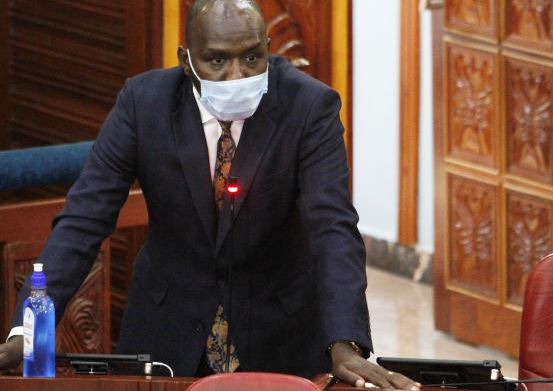×
The Standard e-Paper
Smart Minds Choose Us

If they are not quoting Bible verses, they are dishing out wise words from famous philosophers, writers and statesmen. The honourable legislators led by Kipchumba Murkomen (pictured), Kindiki Kithure, Susan Kihika, Caleb Kositany, Kimani Ichung'wa and Aaron Cheruiyot, it seems, are in deep soul-searching.